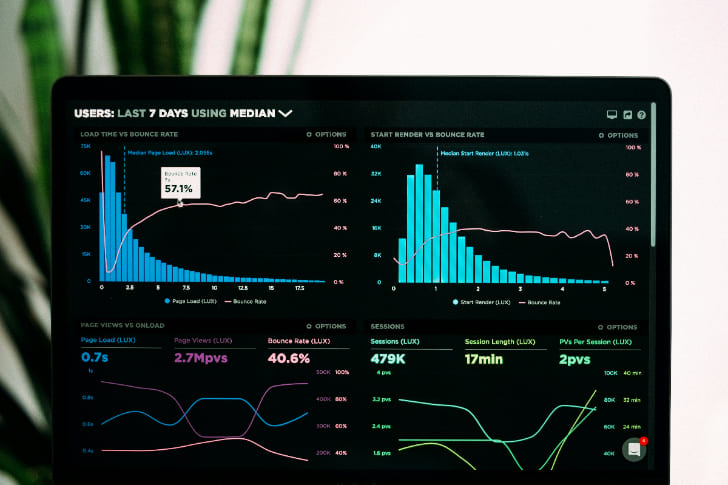Debt is something most people face at some point in their lives—whether it’s from credit cards, student loans, personal loans, or medical bills. When multiple debts start piling up, managing them can feel overwhelming. That’s where debt consolidation comes into the picture.
Debt consolidation is a financial strategy that combines multiple debts into one single loan or repayment plan, often with better terms. It can help simplify your finances, reduce stress, and sometimes save you money. However, like any financial decision, it has pros, cons, and important details you need to understand before moving forward.

In this article, we’ll break down the 10 most important things you must know about debt consolidation so you can decide if it’s the right solution for you.
1. What Debt Consolidation Actually Means
At its core, debt consolidation means rolling multiple debts into one single payment. Instead of juggling various credit cards, loans, and due dates, you combine them into a single monthly payment—usually through a personal loan, balance transfer credit card, or a debt management plan.
The main goal is simplicity. Instead of keeping track of 5–10 bills every month, you focus on one payment. This not only makes managing debt less stressful but can also reduce the chances of missing payments, which helps protect your credit score.
However, consolidation doesn’t erase debt—it just restructures how you repay it. That’s an important distinction many people overlook.
2. Different Types of Debt Consolidation Options
Debt consolidation isn’t a one-size-fits-all approach. There are several ways to consolidate your debt, and the best one depends on your financial situation.
Common Methods Include:
- Debt Consolidation Loan
A personal loan taken from a bank, credit union, or online lender that pays off your existing debts. You then repay this loan in fixed monthly installments. - Balance Transfer Credit Card
A credit card with a promotional 0% or low interest rate for a set period (usually 12–18 months). You transfer high-interest balances onto it and focus on paying them off before the promotional period ends. - Home Equity Loan or HELOC (Home Equity Line of Credit)
Borrowing against the equity in your home to pay off debts. These usually offer lower interest rates but put your house at risk if you default. - Debt Management Plans (DMPs)
Offered by nonprofit credit counseling agencies. They negotiate with creditors to lower interest rates and fees while you make one consolidated payment through the agency.
Understanding the differences is key to choosing the right method.
3. Debt Consolidation vs. Debt Settlement
People often confuse debt consolidation with debt settlement, but they’re not the same thing.
- Debt Consolidation: You’re still paying off the full amount of your debt, but in a more manageable structure.
- Debt Settlement: A company negotiates with creditors to reduce the total amount you owe, often requiring you to stop payments while negotiations happen.
Debt settlement can harm your credit score and has tax consequences (forgiven debt can be considered taxable income), while debt consolidation is usually less damaging and more straightforward.
4. How Debt Consolidation Affects Your Credit Score
Many people worry about how debt consolidation will impact their credit. The truth is—it can affect your score both positively and negatively.
Potential Positives:
- Making consistent, on-time payments improves your payment history.
- Reducing credit card balances lowers your credit utilization ratio, which can boost your score.
- Fewer accounts with balances may simplify credit management.
Potential Negatives:
- Applying for a consolidation loan or credit card creates a hard inquiry, which may temporarily lower your score.
- Closing old credit accounts after consolidation could shorten your credit history length, slightly reducing your score.
In most cases, the long-term benefits of consistent, on-time payments outweigh the short-term dip.
5. You Need Good Credit to Get the Best Rates
Debt consolidation loans and balance transfer credit cards often advertise very low interest rates. But here’s the catch—only borrowers with good to excellent credit scores (usually 670+) qualify for the best terms.
If your credit score is low, you may still be eligible for consolidation, but the interest rate might not be much better than what you’re already paying. In fact, it could be higher.
That’s why it’s smart to check your credit report, work on improving your score, and shop around for the best offers before committing to a consolidation loan.
6. Debt Consolidation Isn’t Free
While debt consolidation can save money on interest, it often comes with costs you need to factor in:
- Origination Fees: Personal loans may charge 1–8% upfront.
- Balance Transfer Fees: Typically 3–5% of the amount transferred.
- Closing Costs: If you use a home equity loan, expect appraisal fees, legal fees, and other charges.
- Monthly or Service Fees: Some debt management plans include administrative costs.
Before choosing a consolidation option, calculate the total cost—including fees—and compare it to how much interest you’d save.
7. It Can Save You Money—If Used Wisely
The biggest appeal of debt consolidation is saving money by reducing your interest rate. For example:
- Say you have $20,000 spread across multiple credit cards with an average 20% APR. That could cost you $4,000 per year in interest alone.
- If you consolidate into a loan at 10% APR, your interest costs drop to $2,000 per year—a savings of $2,000 annually.
Over several years, this adds up significantly. However, savings only materialize if you avoid taking on new debt while paying off the consolidated loan. Otherwise, you risk ending up with even more debt than before.
8. Consolidation Won’t Solve the Root Problem
Debt consolidation is a tool, not a cure. It doesn’t address the habits or circumstances that created the debt in the first place. If overspending, lack of budgeting, or financial emergencies caused your debt, those issues still exist after consolidation.
That’s why financial experts recommend pairing consolidation with:
- Creating a realistic budget.
- Building an emergency savings fund.
- Tracking spending habits.
- Avoiding unnecessary credit card use.
Without addressing the root cause, consolidation may only provide temporary relief.
9. Not All Debts Can Be Consolidated
Another key point: not every type of debt is eligible for consolidation.
Typically, debt consolidation focuses on unsecured debts such as:
- Credit cards
- Personal loans
- Medical bills
- Some student loans
Debts that are harder (or impossible) to consolidate include:
- Secured loans (like car loans or mortgages)
- Certain types of student loans, especially federal loans with specific repayment protections
- Tax debts owed to the IRS
Before moving forward, check which of your debts can actually be included in a consolidation plan.
10. It’s Not Right for Everyone
Debt consolidation can be a powerful strategy, but it’s not suitable for every situation.
You may benefit from consolidation if:
- You have multiple high-interest debts.
- You have good credit and qualify for lower rates.
- You’re disciplined about making payments.
- You want to simplify your financial life.
It may not be right for you if:
- Your total debt is relatively small and manageable with budgeting.
- Your credit score is too low to qualify for better terms.
- You lack steady income to make consistent payments.
- You’re already close to paying off your debts within a year or two.
In those cases, alternatives like aggressive debt repayment strategies (snowball or avalanche methods) or credit counseling might make more sense.
Final Thoughts
Debt consolidation can be a smart financial move when used correctly. It simplifies your payments, can lower interest rates, and helps you focus on becoming debt-free faster. But it’s not a magic solution. It requires discipline, careful planning, and a realistic approach to personal finance.
The key is to evaluate your current debts, credit score, and financial habits before making a decision. Ask yourself:
- Will I qualify for a lower interest rate?
- Do the fees outweigh the savings?
- Am I committed to not taking on new debt?
If the answers align, debt consolidation can be a powerful step toward financial freedom. If not, other strategies—like budgeting, negotiating with creditors, or credit counseling—might serve you better.
Remember: The goal isn’t just to consolidate debt. The goal is to eliminate it and create long-term financial stability.









Leave a Reply